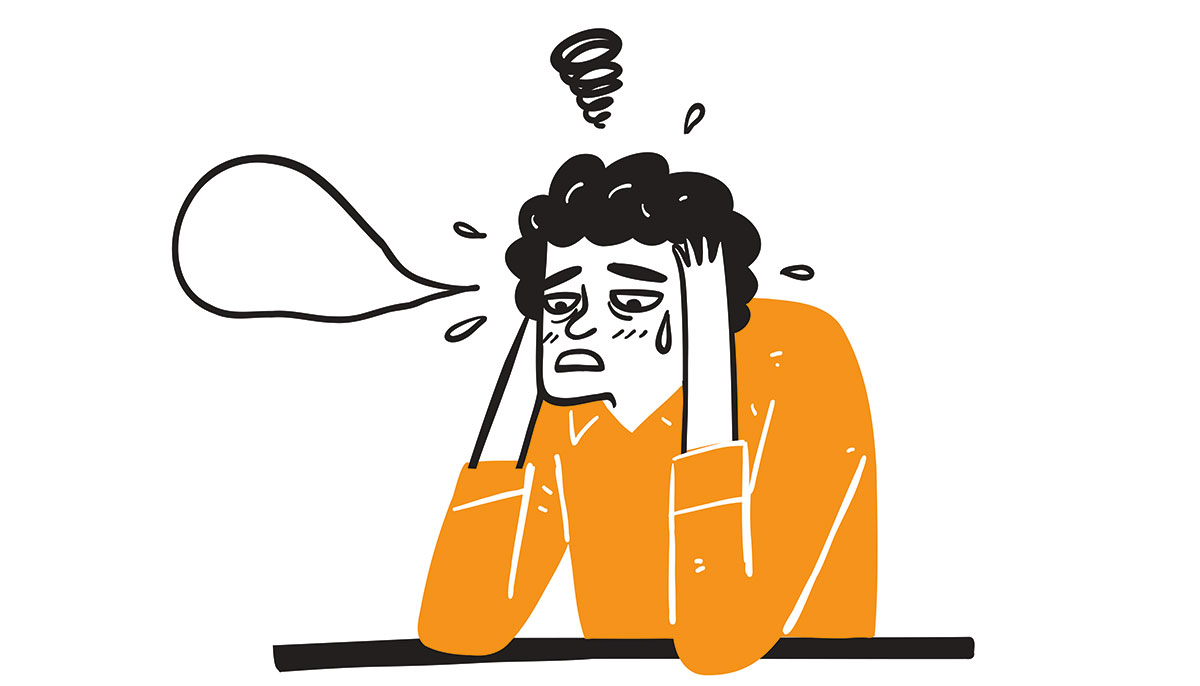I am sure I’m not alone in having made mistakes that I remember long afterward. Whenever I say the wrong thing, there’s such a horrible sinking feeling as I realize the impact of my words.
One such moment I remember came in my first year or two of teaching meditation when I was still nervous about taking the teacher’s seat. I was offering a daylong retreat for people who identify as trans, nonbinary, and genderqueer, co-teaching with a dear friend. We’d known each other a long time. But as I announced our lunch break, I finished with “and when we come back, she will lead a short meditation.”
It’s human to make mistakes; no matter how much we try, there’s no way to stop. And that’s okay.
I’d been referring to my friend with they/them pronouns for a couple of years, and I knew the right thing to say. The wrong pronoun just slipped out—in front of a whole room of folks who identify as trans, nonbinary, or gender-expansive. I froze, and it felt like the next ten seconds took forever to pass. Then I took a deep breath, turned to my friend, and stumbled through. “I mean they,” I said. “I am so sorry.” My friend and co-teacher met my mistake with grace, and I felt a flood of relief.
Since that moment, I’ve made many more mistakes in the teacher’s seat. As someone who often teaches in trans and other affinity spaces, I’ve found that thinking I will not make a mistake is simply unrealistic. Our identities are shifting and new pronouns, genders, orientations, and identities are being created all the time. Even as someone who is trans, genderqueer, and queer, I can’t keep up. There are often more gender identities than there are numbers of people in the room. Instead of trying to get it right every time, I’ve made oops and ouch moments a part of my practice.
Here are a few things I’ve learned along the way about meeting mistakes with presence.
First, I attend to my own experience, pause, and feel. This may be the hardest step. Mistakes bring up shame, which is one of the most challenging feelings to be present for. But as practitioners we show up for many different kinds of discomfort: physical pain, strong emotions, and intense sensation. In meeting shame as part of my practice, I notice in detail how it feels. I notice my breath becoming shallow, my legs activating as if to run, and a shrinking in my spine. Sometimes I find myself leaning away from the person I’m talking to, avoiding eye contact. As uncomfortable as these sensations are, with my full attention, they do pass. I can invite another breath and then another.
Second, I find my interest in the other person’s experience. In my spiritual community, the East Bay Meditation Center, this is one of our agreements for multicultural interaction. This agreement is called “understand the difference between intent and impact.” There is a natural tendency, when we make a mistake, to think of our own good intentions. I find that I immediately want to explain what I meant to say, to tell this person who may be hurting why I didn’t mean to hurt them. There may be a place for some explanation, but it’s not a helpful first step, and it can come off as defensive. Instead, if we turn to the other person and ask them about their experience, we can show that we truly care about our impact on them. This demonstrates our care and empathy, our willingness to hear their experience and put it first—before our own—in this moment when they may be hurting.
Finally, I do my best to make a sincere apology. Like the second step of curiosity and empathy, this is another turning toward the relationship. A good apology will include expressing my understanding of the impact of my action or words, directly saying I am sorry for that impact, identifying something I have learned from this mistake, and making a commitment to different or new action in the future.
Returning to the story of using the wrong pronoun for my fellow teacher, we can see these elements were present. I first took a moment to breathe and notice my experience. I turned to my friend’s experience with empathy for how they may be impacted, and I made an apology, however clumsy. So, I was on the right track.
Now, though, with the benefit of having had more practice with my mistakes, I’d handle the situation a little differently. I would pause and breathe, restate my words with the correct pronouns, acknowledge my mistake to my friend, and make a simple apology. Then I would ask them how they are doing and if they need anything from me beyond an apology. In addition—because my words had just potentially impacted a room full of people—I’d turn to the room and follow the same steps. I would check in and see if anyone had anything they wanted to share about the impact they experienced, and I’d make an apology to them. Finally, I would turn back to our agenda.
We often miss opportunities for repair by not apologizing, but we can also over-apologize, which is another way to make the moment all about ourselves. Part of the art of the apology is making it the right size for the moment. This comes with practice.
It’s human to make mistakes; no matter how much we try, there’s no way to stop. And that’s okay. Mistakes are a key part of how we learn. Can we accept that missteps are part of the human experience and let go of our expectations that we’ll get everything right every time? Once we’ve let go of this unrealistic expectation, we can focus on the part we actually have control over: how we respond when we’ve made a mistake.
At the heart of my own meditation practice is the bodhisattva vow to reduce suffering, my own and the suffering of all beings. This practice of meeting the moment of a mistake, with compassion and empathy for myself and the person I’ve impacted, is one concrete way I live this vow in my everyday life.
This article is from the March 2024 issue of Lion’s Roar magazine.

